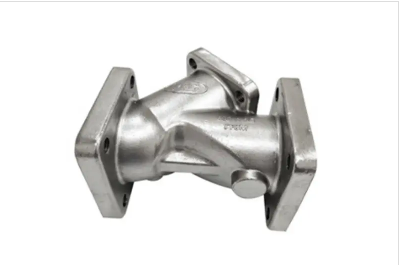Mobile:+86-311-808-126-83
Email:info@ydcastings.com
Mass Flow Measurement Using Impeller Turbine Technology for Enhanced Fluid Dynamics Analysis
Understanding Impeller Turbine Mass Flow Meters
Mass flow metering is an essential aspect of various industrial applications, playing a crucial role in inventory management, process control, and energy efficiency. Among the myriad technologies available for mass flow measurement, impeller turbine mass flow meters stand out due to their reliability, accuracy, and broad applicability across diverse industries, including oil and gas, water treatment, food and beverage, and chemical processing.
What is an Impeller Turbine Mass Flow Meter?
An impeller turbine mass flow meter consists of a rotor (or impeller) that spins as fluid flows through the meter. As the fluid enters the meter, it strikes the blades of the impeller, causing it to rotate. The speed of the impeller's rotation is directly proportional to the fluid's flow rate. By measuring the rotational velocity, operators can determine the mass flow of the fluid, as the meter is typically calibrated to account for the fluid's density and other properties.
Working Principle
The operational principle of an impeller turbine mass flow meter can be summarized in a few simple steps
1. Fluid Entry Fluid enters the flow meter through an inlet section designed to maintain consistent flow conditions and minimize turbulence. 2. Impeller Operation As the fluid moves through the meter, it engages with the impeller. The kinetic energy imparted by the fluid causes the impeller to spin.
3. Measurement The rotational speed of the impeller is measured using sensors (often magnetic or optical). These sensors convert the mechanical movement of the impeller into an electrical signal that can be read and recorded.
Advantages of Impeller Turbine Mass Flow Meters
impeller turbine mass flow meter

1. High Accuracy Impeller turbine mass flow meters are known for their high level of accuracy, generally providing measurement accuracies of ±0.5% to ±1%. This high precision is crucial for industries where even small variations in flow can lead to significant financial implications.
2. Wide Range of Applications These meters can measure various types of fluids, from clean water and oils to more viscous substances, making them versatile tools in multiple sectors.
3. Low Pressure Drop One of the critical advantages is their low-pressure drop across the meter. This feature reduces energy consumption and enables more efficient operation in systems where pressure is a concern.
4. Durability Impeller turbine mass flow meters are usually built from robust materials, ensuring longevity and reliability even in harsh environments. They can withstand vibration, temperature fluctuations, and chemical exposure, depending on their design.
5. Ease of Maintenance Most designs facilitate easy access to the impeller, allowing for straightforward maintenance. Regular checks and cleaning can be performed with minimal downtime.
Challenges and Considerations
While impeller turbine mass flow meters offer numerous advantages, they do come with certain challenges. For instance, their performance can be adversely affected by the presence of entrained gases, solid particles, or significant changes in fluid viscosity. The calibration of the meter may also require periodic adjustments to maintain accuracy.
Conclusion
In summary, impeller turbine mass flow meters serve as a critical instrument for flow measurement across multiple industries. Their combination of accuracy, durability, and versatility makes them an attractive choice for operators aiming to enhance process efficiency and optimize resource management. As technology continues to evolve, the integration of advanced sensors and data analytics will likely further enhance the capabilities of these meters, solidifying their role in the future of flow measurement technology.
-
Impeller Technology That Powers Precision in Pump SystemsNewsMay.22,2025
-
Valve Durability Begins with Quality Cast Iron ComponentsNewsMay.22,2025
-
Performance Cooling with Advanced Automobile Water Pump SolutionsNewsMay.22,2025
-
How Motor Housing and Oil Pans Shape Engine PerformanceNewsMay.22,2025
-
How Metal Castings Drive Modern Manufacturing EfficiencyNewsMay.22,2025
-
Exploring the Engineering Behind Valve Body CastingsNewsMay.22,2025











